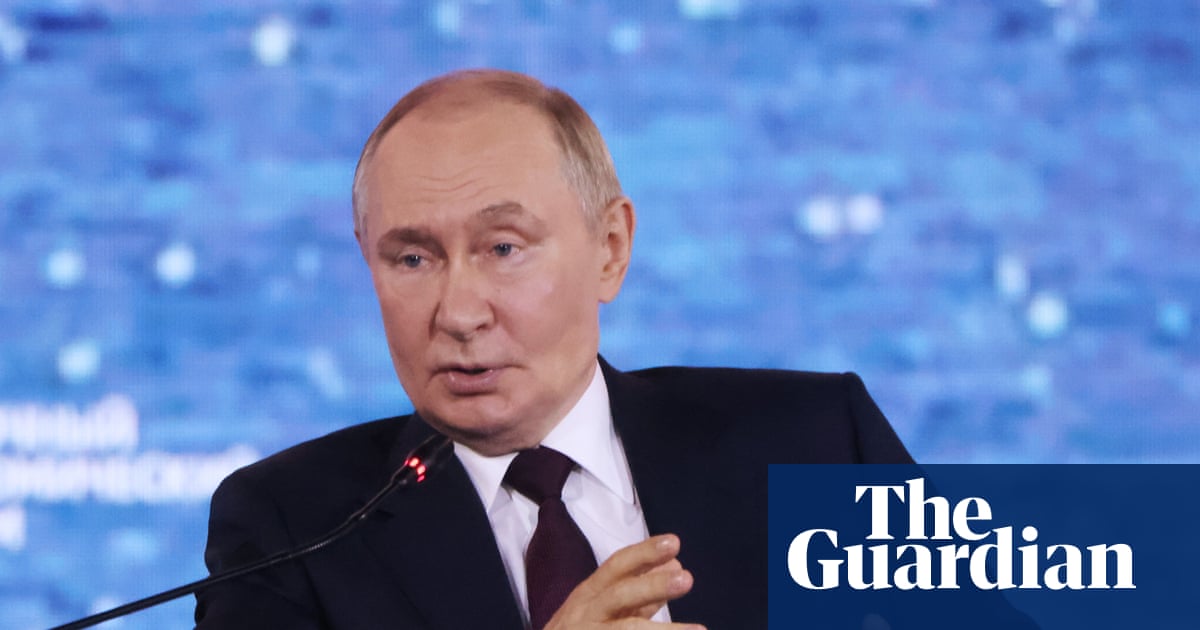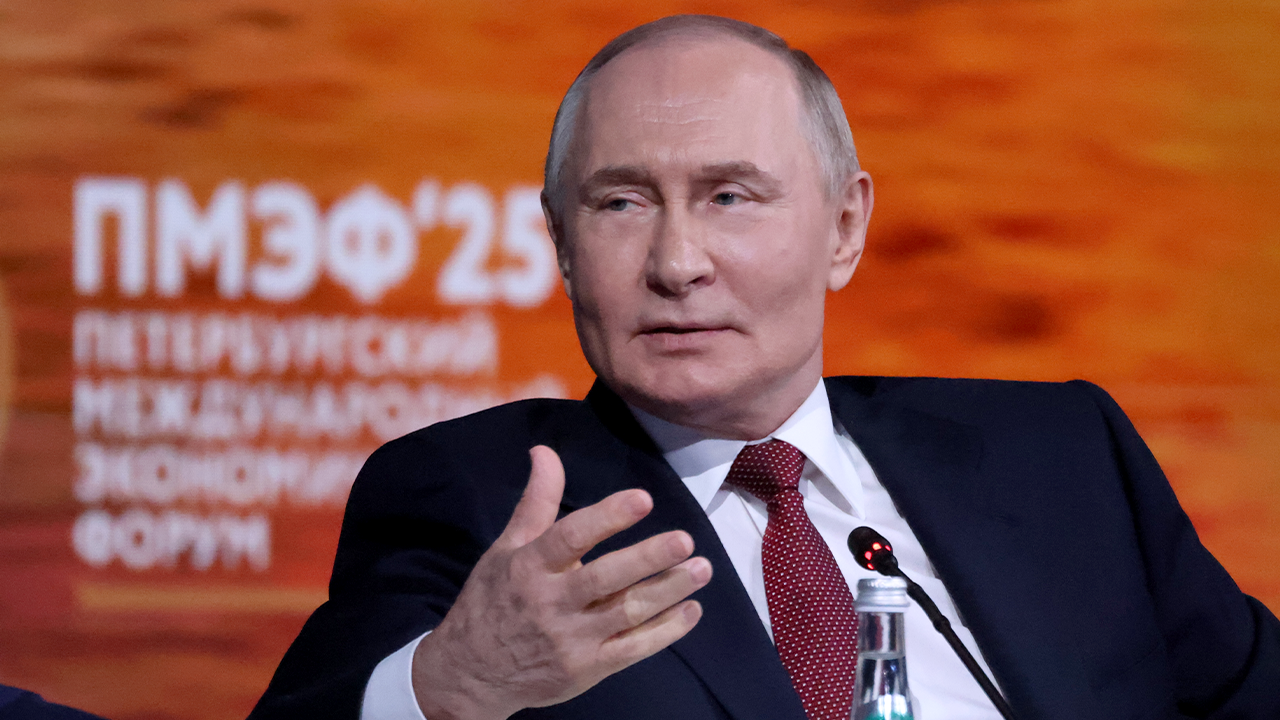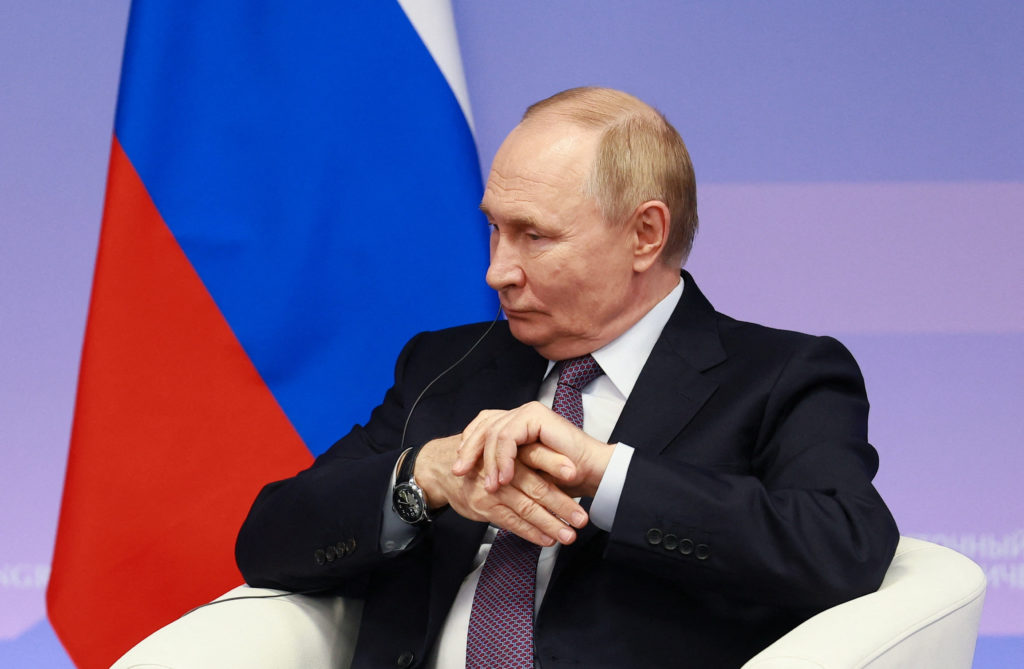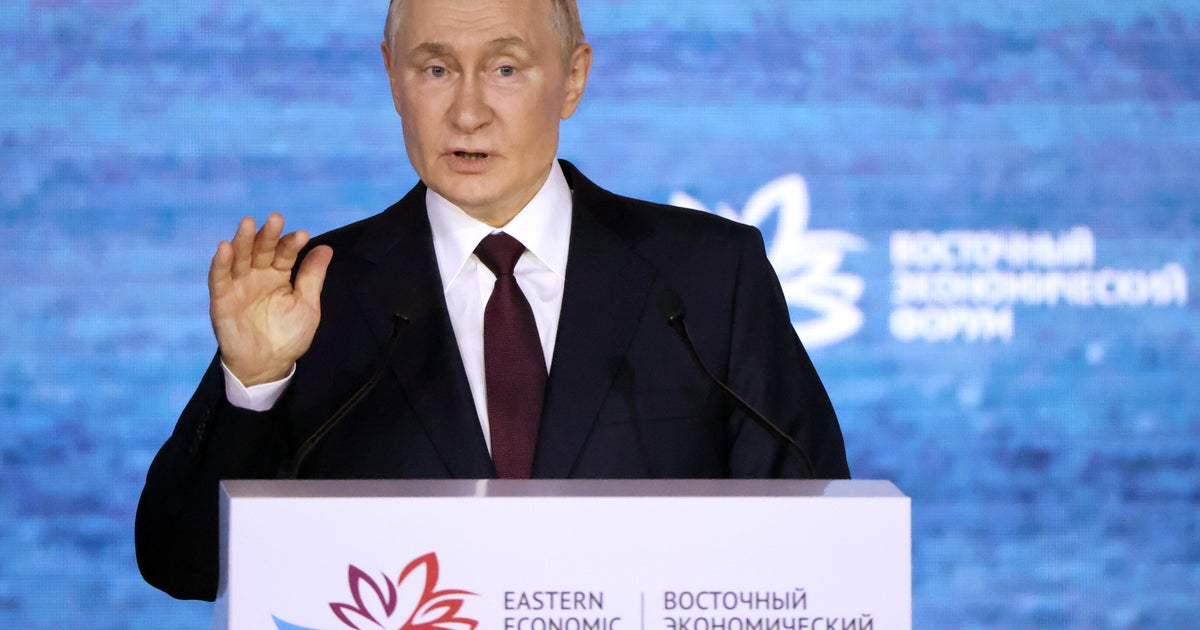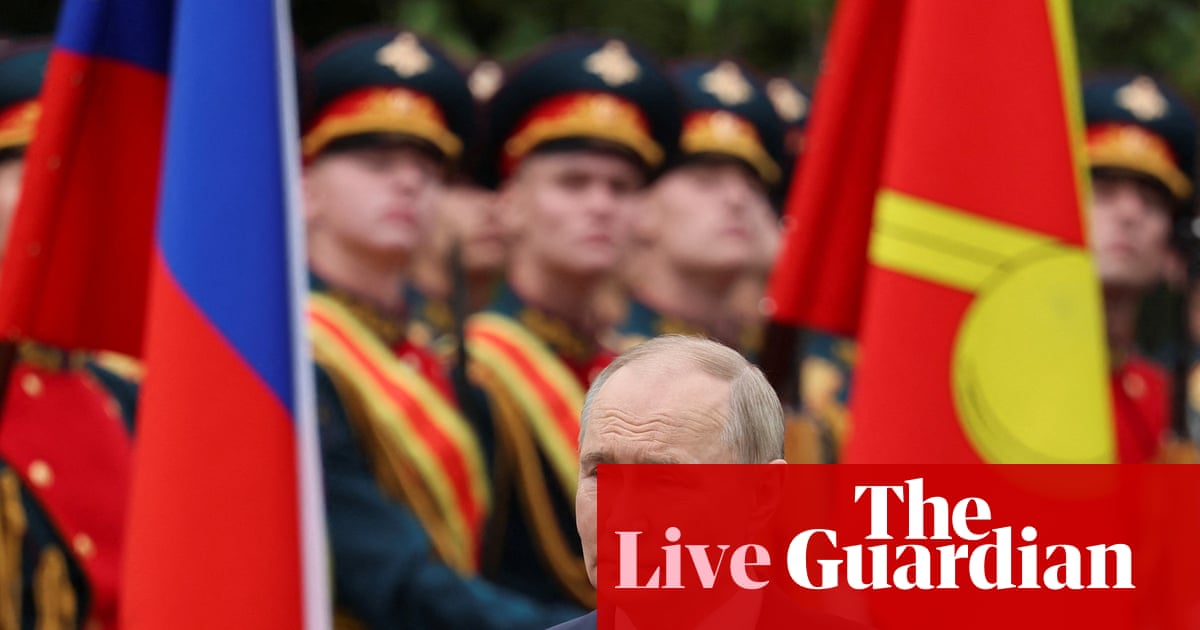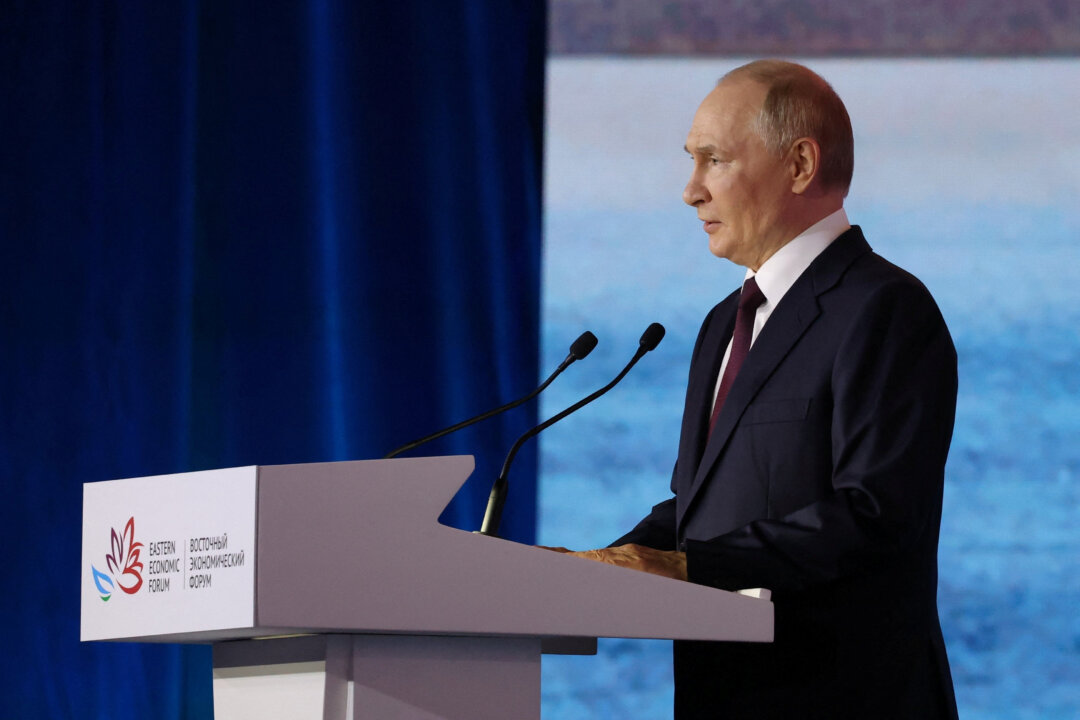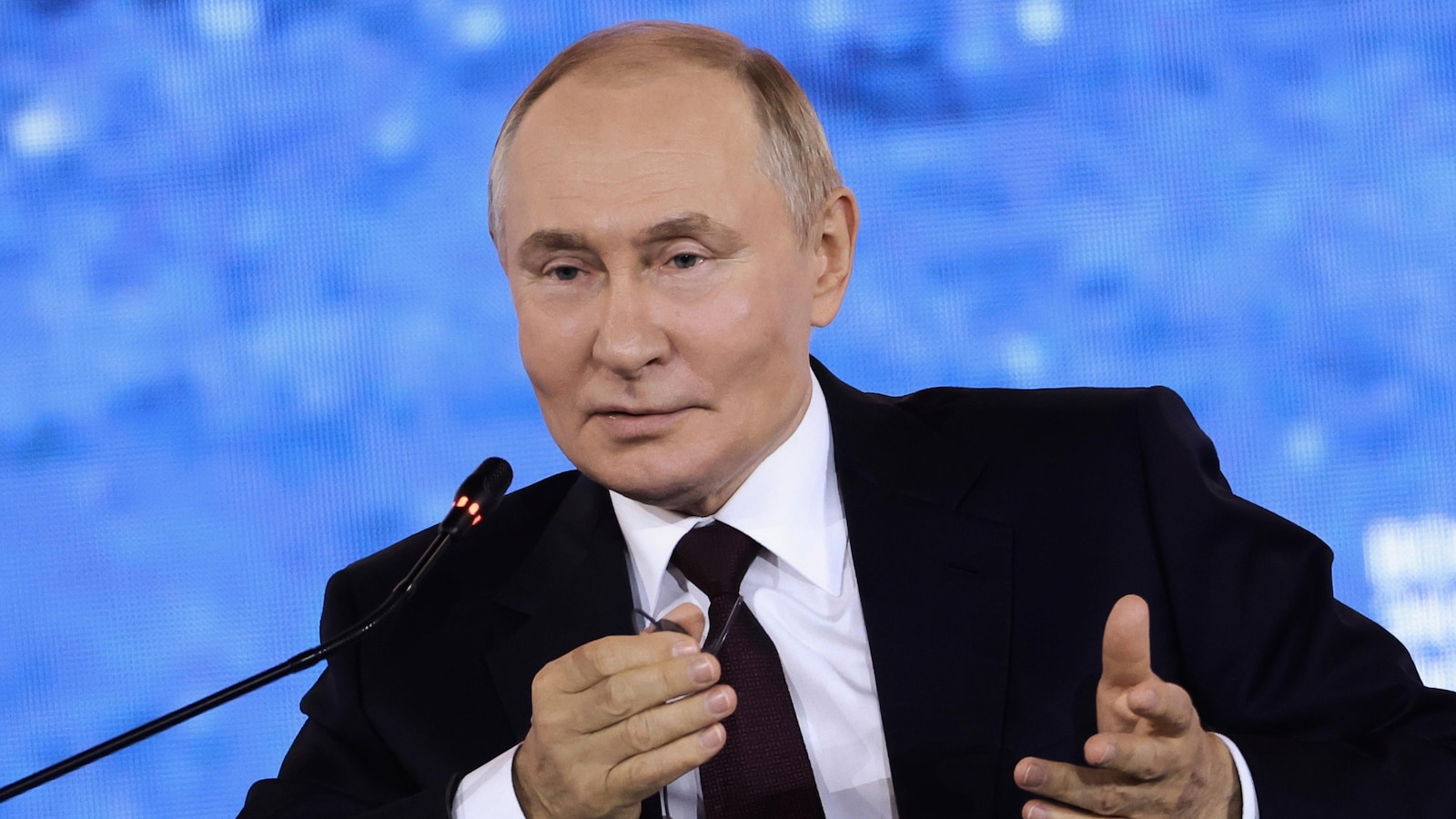Putin Warns Foreign Troops Are Legitimate Targets, Offers Moscow for Peace Talks Amid Ukraine Conflict
Russian President Putin warned foreign troops in Ukraine are legitimate targets, rejecting peacekeeping forces. He offered Moscow for peace talks, contrasting with Zelenskyy's call for robust security guarantees.
Subscribe to unlock this story
We really don't like cutting you off, but you've reached your monthly limit. At just $5/month, subscriptions are how we keep this project going. Start your free 7-day trial today!
Get StartedHave an account? Sign in
Overview
- Russian President Putin sternly warned that any foreign troops deployed to Ukraine, whether before a peace agreement or as peacekeepers, would be considered legitimate targets by Moscow's forces.
- Kremlin spokesperson Dmitry Peskov reinforced this stance, emphasizing the necessity of legally binding security agreements to address the presence of foreign military personnel in Ukraine.
- In contrast, Ukrainian President Zelenskyy underscored Ukraine's critical need for robust security guarantees amidst the ongoing conflict, following pledges from 26 countries for troop deployment.
- Amidst these warnings and ongoing hostilities, Putin offered to host future peace talks in Moscow, despite continued Russian drone and missile attacks across Ukraine.
- Russian forces continued their attacks on Ukraine with drones and missiles, damaging residential buildings, highlighting the persistent military actions despite diplomatic overtures.
Report issue

Read both sides in 5 minutes each day
Analysis
Center-leaning sources cover this story neutrally by presenting a range of perspectives from all involved parties without editorializing. They focus on reporting direct statements and factual events, allowing readers to form their own conclusions. This approach avoids loaded language and provides context from both sides of the conflict, ensuring a balanced informational report.
Articles (8)
Center (2)
FAQ
Putin warned that any foreign troops deployed to Ukraine during ongoing fighting would be considered hostile and legitimate targets for destruction by Russian forces, as he views their presence as an escalation and linked to preventing NATO expansion into Ukraine.
Ukraine insists on the need for robust and effective international security guarantees and protection, emphasizing lessons from past agreements like the 1994 Budapest Memorandum that failed to prevent Russian aggression.
Putin has offered to host future peace talks in Moscow, although Ukraine's government has rejected this offer, calling it unacceptable amid continued hostilities.
More than two dozen of Ukraine’s allies, including NATO members, have committed to deploying a multinational reassurance force consisting of land, sea, and air forces to guarantee Ukraine’s security after a ceasefire or peace agreement, with the force intended to prevent new aggression rather than engage directly in combat.
Russian forces have continued drone and missile attacks on Ukraine, damaging residential buildings, indicating persistence in military operations despite Putin's proposal for peace talks and warnings about foreign troops.
History
- 2M

 4 articles
4 articles
